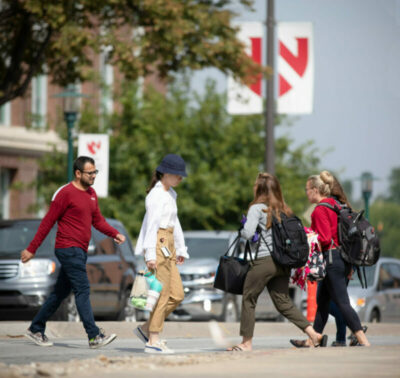Car-Free Day

September 22nd is Car-Free Day, dedicated to finding alternative ways to get to work, school, or running errands. This can include biking, walking, running, taking a scooter, taking public transit, or telecommuting—which many of you are already doing.
Finding ways to reduce car trips is important to your health. Transportation accounts for 28% of US greenhouse gas emissions. According to the Union for Concerned Scientists (UCS), motor vehicles emit six harmful pollutants that hurt human health:
- Particulate matter: fine particles that are one-tenth the diameter of human hair and can embed themselves in lungs and/or bloodstream, causing heart attacks, and/or heart and lung damage
- Volatile organic compounds (VOCs) and nitrogen oxide: both harmful particulate matter that irritate the lungs and body in way that makes it hard to fight respiratory infections like pneumonia and COVID-19.
- Carbon monoxide: blocks oxygen from getting to the brain, heart, and other vital organs.
- Sulfur dioxide: fine particle matter that negatively affects young children and causes asthma
- Greenhouse gases: Several gases, like carbon dioxide and methane, that are released that trap heat in the atmosphere and causes climate change. These gases are harmful to human health and those impacts will be exacerbated as climate changes worsens.
UCS says, “Indeed, tailpipe pollutants pose health risks at every stage of life, and can even cause premature death. But the impacts of climate change, driven by global warming emissions, also affect people’s health and the well-being of entire communities.”
You can make a difference. If you are working on campus, consider TravelSmart—free bus passes, free parking for carpoolers, free shower/locker use, even free emergency rides home. If you need help finding a bus route, email TravelSmart and we’ll help.
For errands, plan out your route before leaving and try to only run errands once a week. If that’s not possible, link your trips together and find the stores that are closest together to reduce driving. Consider shopping at stores that are closer to your home, and are within walking or biking distance—which can further improve your health.
Getting out of your car and finding ways to make active transportation a priority helps improve your health as well as the health of members of our community, decreases emissions that will continue to cause health problems, and saves you money. Changes in our community are making it even easier, consider giving it a try!
